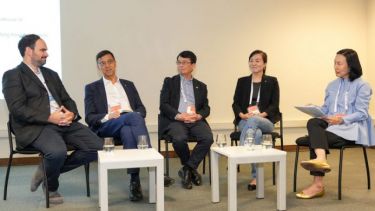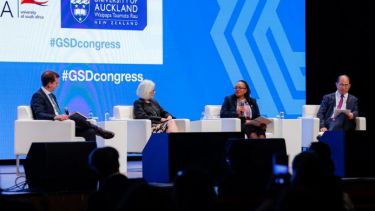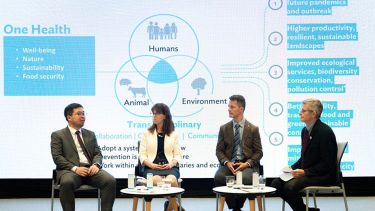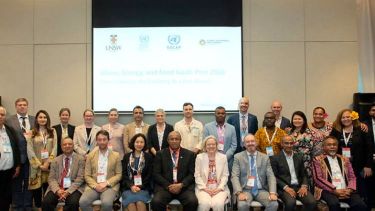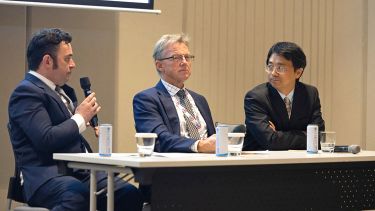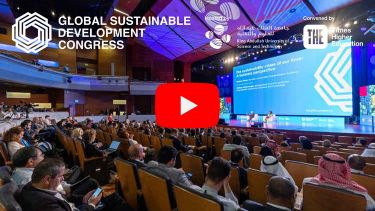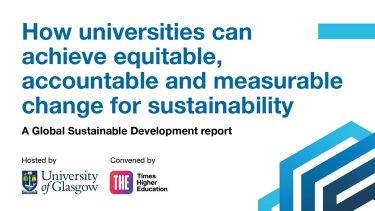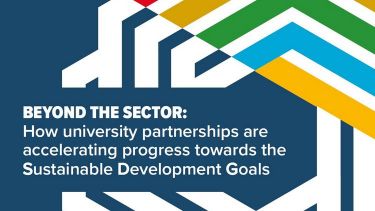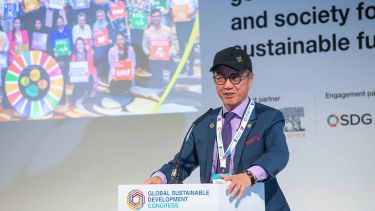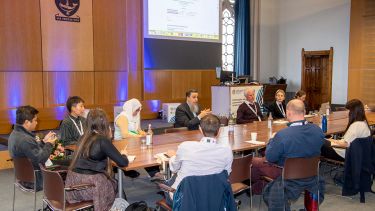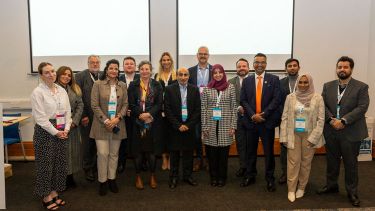16 July 2024
The challenges in meeting the United Nations’ Sustainable Development Goals might seem insurmountable but a shift in mindset can accelerate progress.
Despite the collective efforts of researchers and campaigners, we’re not on track to meet the United Nations’ Sustainable Development Goals (SDGs) by 2030, and forecasts suggest the planet’s average temperature will exceed the 1.5C critical threshold before then. Introducing a workshop on sustainable futures, held in partnership with Elsevier, at the Global Sustainable Development Congress 2024, Anders Karlsson, vice-president of Elsevier, said: “We need new ideas and people to drive change, and where do we find the next generation of talent? Often, it’s at universities. We need to think big, think creatively and think practically.”
Dawn Freshwater, vice-chancellor of the University of Auckland in New Zealand, referred to the words of James Gustave Speth, American environmental lawyer and advocate, who has described the top three environmental challenges as “selfishness, greed and apathy”, rather than scientific problems. Freshwater added that companies’ readiness for innovation had plummeted in the past two years, with just three per cent in “ready” mode. At the same time, universities had too often taken an approach that they knew better than industry. “We must collaborate better with industry, civic society and our peers,” she said. “If we can address these issues our research will fly, even if we no longer do.”
Sunway University in Kuala Lumpur, Malaysia, has gone some way towards tackling these challenges. Mahendhiran Sanggaran Nair, pro vice-chancellor for research and sustainability at the university, described how the institution had transformed a former mining district over the past 50 years into a vibrant green ecosystem with three campuses. “We realised that we needed a mindset shift away from return on investment to return on values,” he explained. “This means a respect for the environment and rethinking what we do, reducing our consumption and reusing the existing resources we have.”
This mindset shift needed to happen across all aspects of corporate and academic life, Nair said, including digital infrastructure, leadership, how an institution interacts with partners and how it incentivises staff and students.
Rachel Martin, senior global director of sustainability at Elsevier, said one of the key achievements spurred by the SDGs was creating a shared agenda universally. “We can use the same language. Suddenly, corporations and the commercial sector can play a role and we have citizens engaging in protests and litigating against governments for lack of action on climate,” she said.
However, one of the hurdles universities and industry partners needed to be mindful of was misinformation and how this affected citizens’ trust in science, she added. Martin has been involved in sustainable storytelling initiatives that build engagement around important issues. She said these conversations needed to continue to counteract any negativity. “This is why we need systemic change – because no one gets to net zero by themselves,” she added.
Freshwater highlighted the importance of communication in prompting the action required to accelerate progress. “Getting people to understand the why is important,” she added. “2030 can seem like a long way off, especially if you have a competing list of priorities, so you need a really compelling narrative people can see themselves in.”
The panel:
- Dawn Freshwater, vice-chancellor, University of Auckland
- Anders Karlsson, vice-president, Elsevier (chair)
- Rachel Martin, senior global director of sustainability, Elsevier
- Mahendhiran Sanggaran Nair, pro vice-chancellor for research and sustainability, Sunway University


